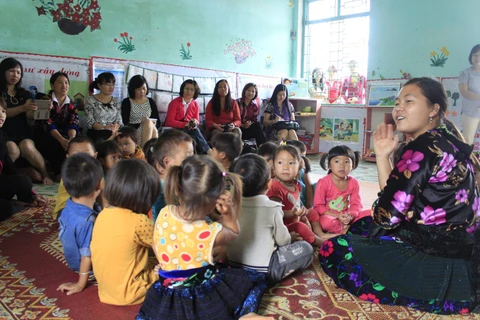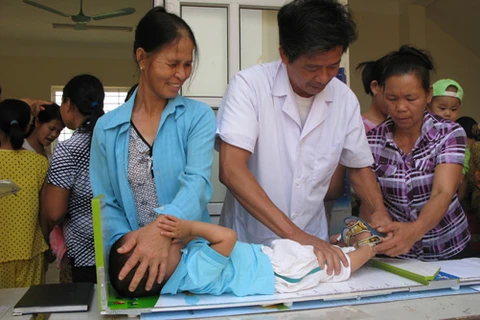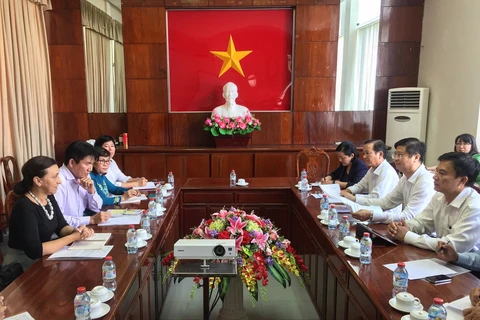Hanoi (VNA) – Self-managed councils of students and children’s clubs have been formed in ten schools in the northern mountainous province of Yen Bai from 2015-2018, helping promote children’s participation in improving the learning environment quality.
These are outcomes of a project on encouraging the involvement of social and mass organisations and students in increasing quality education and preserving traditional culture and identities at schools. The project was carried out from 2015 to 2018 in Van Chan district by the Vietnam Association for Protection of Children’s Rights with the support of the EU Delegation to Vietnam and the Save the Children.
A dialogue in Hanoi on May 23 heard that the project, which has come to nine communes of Van Chan district, has impacted more than 3,000 junior high school students, 4,500 local residents of the H’mong, Dao, Thai and Khomu ethnic minority groups, 300 teachers and managers of the ten targeted schools.
The above-said councils and clubs are the venues where children express their opinions on issues of their concern, propose and carry out initiatives regarding the the learning environment and join hands in activities promoting children’s rights.
Each school has formed a council with 16 members and a club with between 14-16 children. The members were given training on children’s rights as well as communication, presentation and planning skills. They were sent to a range of activities like contests, workshops and field trips.
Nguyen Thi Thanh Hoa, Chairwoman of the Vietnam Association for Protection of Children’s Rights, said that over the past three years, the project has significantly contributed to changing awareness and actions of local authorities, agencies, children, parents and school managers about learning environment improvement, especially at day-boarding schools for ethnic minority students.
As a result, local authorities have held dialogues with children to listen to their opinions, while interaction between school management and students was improved. Parents also participated more in school activities.
Besides, the project has also helped reform management methods at schools through the introduction of a toolkit to evaluate the learning environment.
Participants at the dialogue on May 23 agreed that such models should be maintained and replicated to contribute to improving education quality for ethnic minority students.-VNA
VNA























